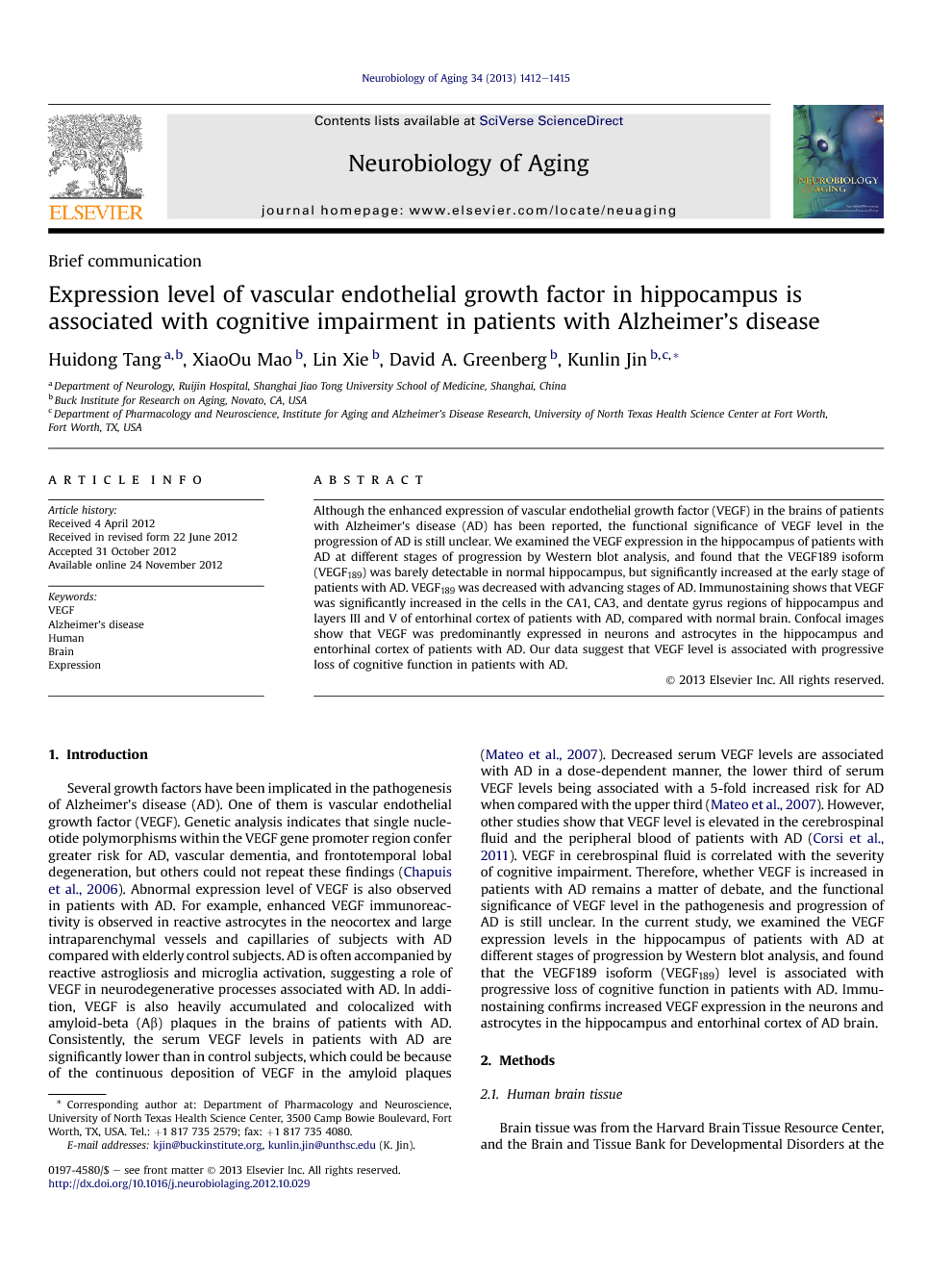ترجمه فارسی عنوان مقاله
سطح بیان فاکتور رشد اندوتلیال عروقی در هیپوکامپ با اختلال شناختی در بیماران مبتلا به بیماری آلزایمر همراه است
عنوان انگلیسی
Expression level of vascular endothelial growth factor in hippocampus is associated with cognitive impairment in patients with Alzheimer's disease
| کد مقاله | سال انتشار | تعداد صفحات مقاله انگلیسی |
|---|---|---|
| 30805 | 2013 | 4 صفحه PDF |
منبع

Publisher : Elsevier - Science Direct (الزویر - ساینس دایرکت)
Journal : Neurobiology of Aging, Volume 34, Issue 5, May 2013, Pages 1412–1415
ترجمه کلمات کلیدی
-
' - بیماری آلزایمر -
بشر -
مغز -
بیان
کلمات کلیدی انگلیسی
VEGF,
Alzheimer's disease,
Human,
Brain,
Expression,

